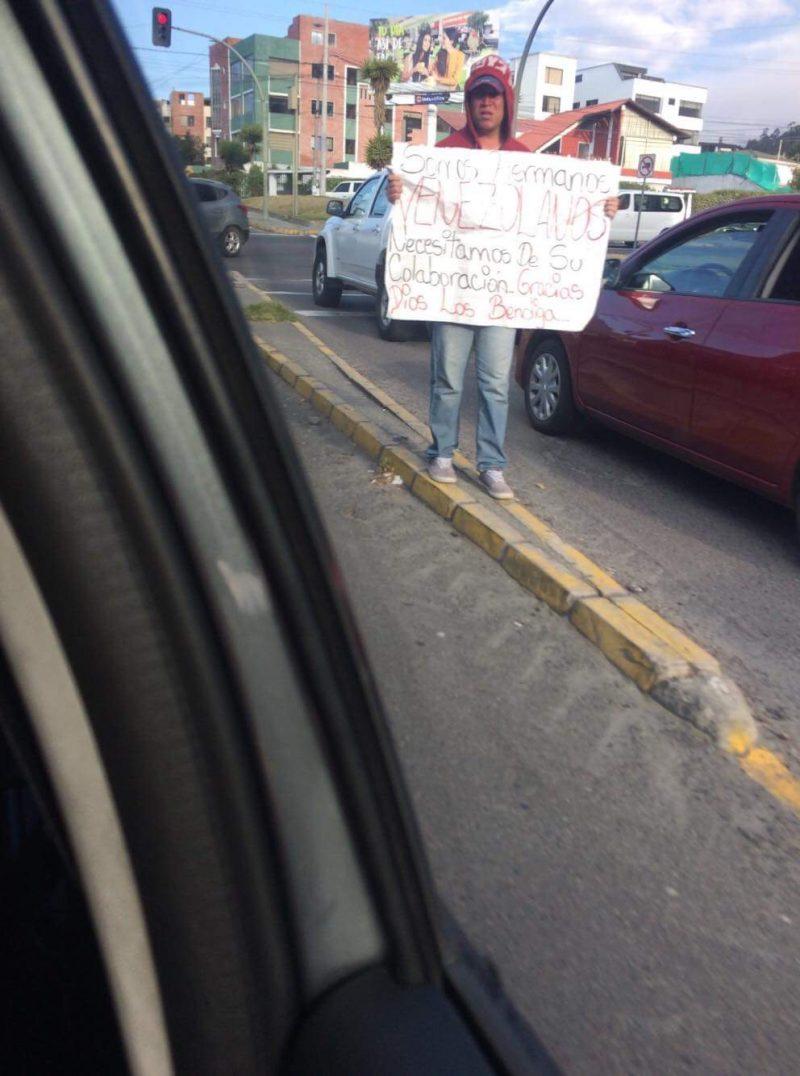For many college students studying away from home, the arrival of winter or summer break is a happy reminder that they will soon be able to go back where they belong and spend time with the people they love.
As an international student, my return home this summer break was not as comforting as it has been in previous years. Why would going back make me sad, you might ask? This time, going home to Ecuador meant watching the depressed circumstances that fleeing Venezuelan families now face in my country and others.
In case you are not aware of the deplorable economic circumstances Venezuela is currently facing, more than two million people have fled the country since 2014 due to destitute living conditions and resource scarcity as the country’s currency faces the highest levels of hyperinflation in its history and plunges in value by the day. Venezuelan families have been forced to abandon their native country in search of asylum or refugee status in neighboring countries where they hope to find better living conditions.
While this solution might have been an initial hopeful promise to those wanting to leave Venezuela, over the past year, it has become a humanitarian problem for the region. For other countries like Colombia, Brazil, Peru, Chile and Ecuador, the daily flood of Venezuelans through their borders has caused significant immigration and social issues.
Laura Gomez, a junior currently studying abroad in Brazil, expressed her sadness when observing the living condition of Venezuelans over there. “Around three weeks ago, I remember watching the news with my host-mom here in Brazil and feeling so crushed inside. We both stayed quiet as we saw the living situation of thousands of Venezuelan refugees in Roraima, a state in northern Brazil.”
While Venezuelans arrive with optimism towards finding a potential job, so they can take care of their families, they are up against even higher odds of being able to achieve that goal once they’ve immigrated. Due to a mixture of feelings from people in other Latin American countries, the Venezuelan immigration has sparked massive outrage and claims that this is a problem which their states should not be responsible for solving and that the immigration is beginning to affect citizens of host countries as well.
Laura referred to some videos she saw of the violent encounters Venezuelans at times have to endure: “It was so heartbreaking to see how some refugees were victims of xenophobia as they were being expelled violently from Pacaraima by locals after conflict erupted between them.”
Mauricio Bernal, a senior international student from Colombia, also expressed his concern towards this issue during an interview: “The situation has become harder for Venezuelans trying to come into Colombia. Finding jobs is not easy, and even then, the jobs some people do end up having are really bad for the skill set they possess. People who used to have good jobs now settle for whatever they can get.”
Although this undergoing situation with Venezuelan people and their families seems like nothing but bad news on top of bad news, there are individuals in other countries who are willing to aid refugee families and asylum-seekers. As Laura said in her statement, “It also [gives] us hope to see many groups of Brazilians showing so much solidarity towards Venezuelans by opening their doors to the refugees and giving them free meals, clothing and sometimes places where they could spend the night.”
Although I can not say what will be the outcome of this horrible humanitarian crisis Venezuela is having, I wish the best to the families that are crossing borders to other countries and hope that Venezuela’s economic situation improves. It is hard to witness such harsh living conditions for the millions of affected families and children.
As Maria Torres, a junior student from Ecuador, who returned home during this summer break mentioned to me, “It is an escalating problem. More than half a million Venezuelans have entered Ecuador at this moment, and because of that, the country had to declare a state of emergency along its borders. So you don’t really know what the best solution for this crisis can be, or if there even is one.”








sbobetbit • Oct 12, 2018 at 3:59 am
Excellent article. I will be facing some of these issues as
well..